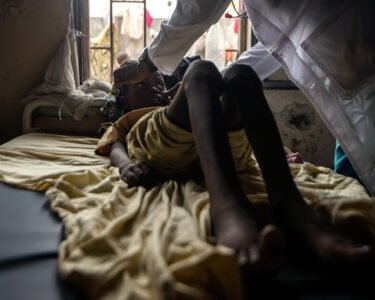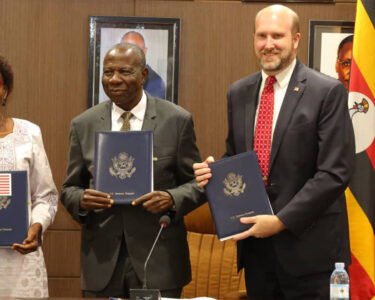Health officials in Moyo District, located in the West Nile region, have confirmed the detection of a suspected case of Mpox (monkeypox). The District Health Officer, Dr. Franklin Iddi, reported that the case involves a man who presented at Laropi Health Center displaying symptoms consistent with Mpox. The patient has been admitted to an isolation facility in Laropi Town Council while awaiting blood sample testing for confirmation.
“We have registered a suspected case where the individual is exhibiting signs and symptoms of monkeypox. He is currently under isolation at Laropi Health Center as we prepare to collect samples for laboratory analysis,” Dr. Iddi stated.
Dr. Iddi emphasized that there is no immediate cause for alarm but urged the public to remain vigilant. “There is no need for panic at this stage, but maintaining alertness is crucial. People should continue practicing preventive measures, such as regular hand washing,” he advised.
Given the district’s proximity to South Sudan and the active cross-border trade, Dr. Iddi highlighted the necessity for enhanced surveillance. The source of the infection remains unclear, but the disease is currently considered a significant health concern by the World Health Organization (WHO).
Mpox is primarily transmitted through close contact and is characterized by symptoms such as rashes, flu-like symptoms, and pus-filled lesions. The disease poses heightened risks to children, pregnant women, and individuals with weakened immune systems. Other symptoms include high-grade fever, swollen lymph nodes, headaches, and general body weakness.
Mpox has been prevalent in the Democratic Republic of the Congo for over a decade, with the number of reported cases steadily increasing each year. According to WHO, last year saw a significant surge in cases, and this year’s figures have already surpassed the previous year, with over 14,000 cases and 524 deaths reported globally.
Mr. Emmanuel Bada, the Councilor for Moyo Sub-county, urged residents to remain vigilant and cooperate with health authorities. “We must stay alert and strictly adhere to the Ministry of Health’s safety guidelines. Being a border district with South Sudan, where the border is frequently porous, it is vital for our communities to maintain high standards of hygiene at home and not to take any risks lightly,” Mr. Bada emphasized.
As the situation develops, health officials continue to monitor the case closely while encouraging the community to take all necessary precautions to prevent the spread of the disease.





